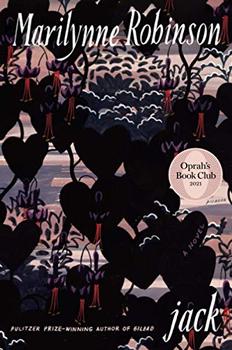Book Club Discussion Questions
In a book club? Subscribe to our Book Club Newsletter and get our best book club books of 2025!
For supplemental discussion material see our Beyond the Book article, The Segregation of St. Louis and our BookBrowse Review of Jack.
Please be aware that this discussion guide will contain spoilers!
- Raised by clergymen and devoted to literature, Jack and Della appear to have much in common. Are
those commonalities the basis for their attraction to each other, or does the true spark come from their differences? What accounts for the fact that Della is quite accomplished in her professional life but doesn't
expect the same in her partner? Would their relationship have flourished if it had not been forbidden?
- If you have read the other novels in the series (particularly Home), compare the scenes in Jack to the images you had previously pictured for the turning points in the Boughtons' family history. What is the effect
of reading a prequel, knowing what the characters' outcomes will be while watching them speculate about
their futures? How has your opinion of Jack evolved since he was first introduced through the recollections
of John Ames in Gilead? Are there any parallels between Jack and Della's relationship and the marriage
that forms the basis of Lila?
- Are Reverend Boughton and Reverend Hutchins kindred spirits or disparate ones? If you were Bishop
Miles, how would you have reacted to Della's relationship with Jack?
- Many of the scenes in Jack take place in the dark or in the rain; Jack is even referred to as the Prince of
Darkness. Yet the prose itself is luminous. How does the author's use of clear-eyed imagery and piercingly
direct dialogue belie an exploration of the murkiest aspects of human relationships (and relationships with
the divine)?
- Is Jack's alcoholism the root of his troubles, or is it a symptom?
- What does the novel demonstrate about the equal difficulties of loneliness and companionship? As Jack
leafs through the phone book looking for churches, what is he discovering about the difference between
seeking community in a big city and searching for a sense of belonging in a small, rural town like the one
where he was raised?
- Discuss the distinctions between maternal and paternal love as they are described in Jack. What are some
of the differences between the challenges faced by the novel's female and male characters, particularly as a
result of the time period?
- Hymns and poetry (and bits of Hamlet) as well as quotations from theologians are woven throughout
Jack and Della's experiences. Which lines made you pause the longest? Which of your books do you
treasure as much as Della treasures her copy of Paul Laurence Dunbar's Oak and Ivy?
- Jack raises difficult questions about the nature of sin and suffering. What is your explanation for the
characters who inflict harm, from the hucksters who cheat Jack out of money, to the racist landlord in
Chicago who evicts him? What is at the root of the continual thievery committed by Jack himself?
- Della's brothers served in the military, whereas Jack's past is marked by prison and a failed relationship
that resulted in an out-of-wedlock child who did not survive. Why is it hard for him to overcome his
unheroic past, defining himself through guilt and shame?
- In Gilead, Jack asks John Ames about the tenet of predestination: "Do you think some people are intentionally and irretrievably consigned to perdition?" (page 150). Does the novel Jack offer an answer to this
question? Do you believe in perdition? Conversely, do you believe in the notion that it is simply Della's
God-given nature to be a good person?
- Jack works a slew of decidedly odd jobs. Which ones would you have been willing to take? How is his
concept of work different from that of the teachers and clergy in his life?
- Home and its metaphors are recurring themes in Marilynne Robinson's fiction. How did you respond to
Jack's conflicted quest to avoid having a permanent address while still being able to pick up envelopes of
cash from Teddy?
- The first book in the Gilead series prominently features John Ames's grandfather, a fiery abolitionist
preacher. Despite the reforms of the Civil Rights movement (including the 1967 Supreme Court decision
that overturned laws against interracial marriage), horrific acts of violence against Black people, as well as
racial disparities in employment, health care, and other aspects of quality of life, continue in the twenty-first
century. What can Jack and Della teach us about healing our world?
Unless otherwise stated, this discussion guide is reprinted with the permission of Picador.
Any page references refer to a USA edition of the book, usually the trade paperback version, and may vary in other editions.
